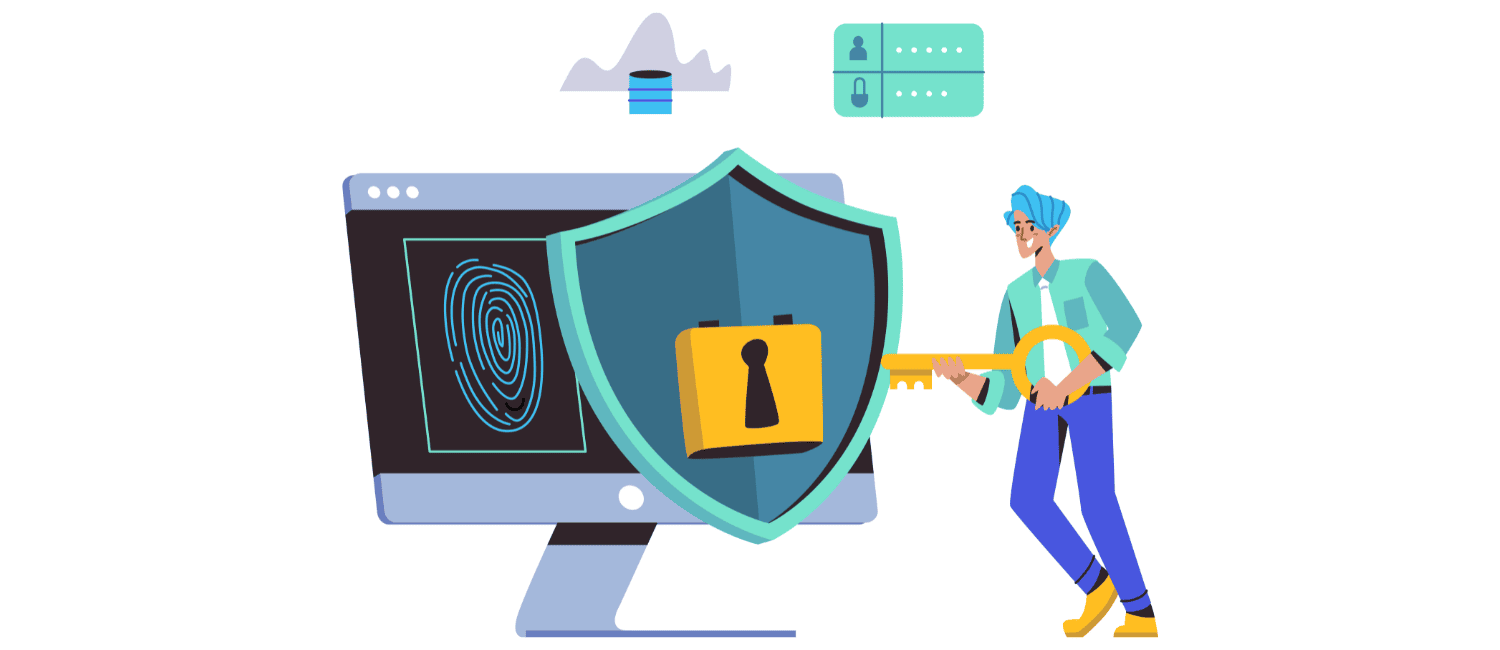If there’s one question I hear all the time from students and parents, it’s this:
“Is cyber security a good career choice?”
Let me give you the short answer: Absolutely, yes.
We live in a world where everything—from your bank account to your school records—is online. And while that’s convenient, it also means cybercrime is at an all-time high. In fact, according to a NASSCOM report, the demand for cyber security experts is projected to grow by 32% over the next five years in India.
That means we don’t just need more people in cyber security—we need smart, curious, purpose-driven minds like yours. Whether you’re a student exploring tech careers, a parent looking for future-proof paths for your child, or even a professional considering a switch—this field offers high salaries, global opportunities, and most importantly, real-world impact.
And don’t worry—you don’t need to be a “tech genius” to begin. You just need the right guidance, tools, and a mindset for continuous learning.
In this guide, I’ll walk you through what the career looks like, the education paths, skills you’ll need, and how you can build a future-proof career in cyber security. Let’s dive in!
Introduction to the Career
Cyber security professionals are responsible for protecting computer systems, networks, and data from unauthorized access, attacks, or damage. As cybercrimes escalate globally, the demand for skilled experts is soaring across all industries—from banking and healthcare to defense and IT.
Why it’s booming:
Massive digital transformation across sectors
From banking and healthcare to education and e-commerce, nearly every industry is going digital. As businesses shift operations online, the need to secure data, systems, and user privacy becomes critical—driving huge demand for cyber security professionals.
Increasing frequency and sophistication of cyberattacks
Cybercriminals are getting smarter and attacks are happening more often—ransomware, phishing, and data breaches are now daily news. Organizations need skilled experts who can detect, prevent, and respond to these threats in real time.
Widespread adoption of remote work and cloud technologies
With remote teams and cloud platforms now the norm, traditional security models no longer apply. Companies must secure devices, data, and access from anywhere—creating new challenges and career opportunities in cyber security.
Is it for you?
If you’re analytical, detail-oriented, and enjoy troubleshooting, cyber security could be your ideal career path.
Key Responsibilities & Work Environment
Cyber security roles can vary depending on the industry and job title, but here are some common responsibilities:
- Monitor and analyze network traffic for suspicious activity
- Identify and fix system vulnerabilities
- Conduct penetration testing to simulate attacks
- Develop security protocols and ensure compliance
- Investigate incidents and perform digital forensics

Work Environment
Cyber security professionals typically operate in dynamic, high-stakes environments where vigilance and rapid response are key. While the nature of the job demands access to secure systems and collaboration with teams, the digital-first landscape has also created flexibility in where and how professionals work.
- Office-based or hybrid roles are common – Most roles are based in corporate or government offices, especially within Security Operations Centers (SOCs). However, many organizations now offer hybrid models, allowing professionals to work both from the office and remotely.
- Security operations may involve 24/7 monitoring – Cyber threats don’t follow office hours. Large organizations—especially in finance, defense, or healthcare—require around-the-clock monitoring. This may involve shift work, weekend duty, or being on-call for urgent incidents.
- Remote opportunities are increasing, especially in global tech firms – With cloud infrastructure and secure VPN access, many cyber security tasks can now be performed remotely. Global companies, start-ups, and consulting firms are increasingly offering fully remote or flexible roles, making the field more accessible.
Educational Pathways & Required Qualifications
One of the things I love most about the cyber security space is how flexible the entry paths are. Whether you’re a techie from the start or a curious learner making a switch, there’s room for you here. The key is to build a strong foundation and stay updated—because in this field, what you know today might evolve tomorrow.
Traditional Routes:
- Bachelor’s Degree in Computer Science, IT, or Cyber Security
This is the most common route, giving you a solid grounding in programming, networking, and system security. - Master’s Degree for Specialization
For those aiming to dive deeper, a Master’s in areas like cyber law, digital forensics, or ethical hacking can unlock advanced roles and leadership opportunities.
Alternative Routes:
- Diplomas or Certifications (Great for Non-Tech Backgrounds)
Certifications like CompTIA Security+, Certified Ethical Hacker (CEH), or CISSP are highly respected by recruiters and can help career switchers break into the field quickly. - Online Bootcamps, MOOCs, or Internships
Platforms like Coursera, Udemy, or Google’s Cybersecurity Certificate offer self-paced learning. Combine this with hands-on projects or internships for practical exposure.
Whether you’re a beginner or switching careers, multiple learning paths are available to suit your goals.
Entrance Exams (If Applicable)
Now here’s the good news—there’s no single national exam you must clear to enter the cyber security world. That means you’ve got flexibility! However, if you’re aiming to join top universities or formal diploma programs, you may have to take entrance exams as part of the admission process. These exams test your problem-solving, logic, and basic computer science knowledge—nothing too scary if you’ve been preparing or are just genuinely interested in tech.
Entrance Exams for Cyber Security-Focused Programs
Exam Name | Conducting Body | Relevant Courses | Mode | Typical Timeline |
JEE Advanced | Indian Institutes of Technology (IITs) | B.Tech in Computer Science with Cyber Security | Offline/Online | May–June (Yearly) |
JEE Main | NTA (for NITs, IIITs) | B.Tech IT/CS with electives in Cyber Security | Online | Jan & April (Yearly) |
CUET UG/PG | NTA | UG & PG tech programs in universities incl. Cyber Sec. | Online | April–June |
NIIT Aptitude Test | NIIT University | B.Tech in Cyber Security / Integrated M.Tech | Online | March–August |
LPUNEST | Lovely Professional University | B.Tech in Computer Science with Cyber Security | Online | Multiple rounds yearly |
SRMJEEE | SRM University | B.Tech CSE with specialization in Cyber Security | Online | April–June |
VITEEE | VIT University | B.Tech in CSE (Cyber Security specialization) | Online | April |
IIIT-H UGEE/SAT Channel | IIIT Hyderabad | Dual degree with CS specialization incl. Cyber Security | Online | April–May |
BITSAT | BITS Pilani | B.E. Computer Science (with electives in Cyber Security) | Online | May |
Skills & Technical Abilities
When it comes to cyber security, it’s not just about coding or setting up firewalls—it’s about thinking ahead of cybercriminals. I’ve worked with students who had brilliant technical knowledge but struggled because they lacked communication or ethical discipline. The real magic happens when your technical know-how meets your soft skills. Here’s what you’ll need to thrive:
Technical Skills:
1.Network security & system configuration
You’ll need to understand how different devices, servers, and users connect and communicate over a network—and how to protect that flow of information. This involves setting up routers, VPNs, and firewalls, configuring permissions, and ensuring that the network is not vulnerable to intrusions.
2. Operating systems (Linux, Windows)
Cyber security professionals must navigate and secure multiple environments. Linux is heavily used in servers and security tools, while Windows dominates corporate desktops. You must know how to spot vulnerabilities and configure user privileges, system logs, and updates across these platforms.
3. Cryptography and secure coding
Whether you’re working on applications or securing databases, encryption and secure coding are essential. Understanding algorithms like AES or RSA, hashing methods, and best practices in writing code that’s resistant to SQL injection or cross-site scripting is part of this skill set.
4. Penetration testing and threat modeling
This is the “ethical hacking” part—simulating cyber attacks to identify weak spots in a system before real hackers do. Threat modeling, on the other hand, is the process of imagining how a system could be attacked and planning defense strategies.
5. Knowledge of firewalls, IDS/IPS, and SIEM tools
Firewalls act like security guards at your network’s entry points. Intrusion Detection/Prevention Systems (IDS/IPS) monitor unusual activity. SIEM tools (like Splunk or IBM QRadar) analyze data from across the network to detect and respond to threats in real-time. Knowing how to configure and use these tools is a must.
Soft Skills
1.Analytical thinking & problem-solving
Cyber threats don’t follow a script—they’re often subtle and unpredictable. You’ll need to piece together tiny clues, like log anomalies or system behavior, and trace them back to their root cause. It’s like solving a digital mystery every day.
2. Attention to detail
A single overlooked setting or weak password can compromise an entire system. Whether you’re writing code or analyzing logs, precision is critical—there’s little room for error.
3. Clear communication with non-technical teams
You might understand the technical jargon, but the finance team or top management won’t. You need to explain security risks and solutions in a way that makes sense to non-tech stakeholders. For example, translating a data breach risk into potential financial or reputational impact.
4. Team collaboration
Cyber security isn’t a solo job. You’ll often work with developers, network engineers, compliance officers, and legal teams. Being able to coordinate, listen, and align everyone’s goals is vital in preventing or mitigating attacks.
5. Ethical responsibility
You’ll often have access to sensitive information, systems, and loopholes. The field demands trustworthiness and strict adherence to ethical standards. Many roles, especially in ethical hacking, require professionals to sign codes of conduct and handle confidential data responsibly.
Success in cyber security demands more than just tech expertise—it requires a sharp mind and the ability to think one step ahead.

Career Progression and Growth Opportunities
One thing I love about the cyber security field is how dynamic and layered it is. Whether you’re just starting out or switching careers midstream, there’s always a way forward—and upward. I often tell students, “In cyber security, you’re not just chasing a job—you’re building a future-proof career.”
Let’s break down what your growth journey might look like:
Entry-Level Roles – Laying the Foundation
These roles are great for fresh graduates, career changers, or anyone entering the industry with basic certifications and hands-on training.
- Security Analyst
Your job is to monitor systems for suspicious activity, respond to alerts, and assist in the first line of defense. Think of it as being the security guard for digital assets. - Network Security Engineer
Here, you’ll work on configuring and maintaining secure networks—setting up firewalls, VPNs, and intrusion detection systems. - IT Support (with a security focus)
A great stepping stone. You’ll troubleshoot user issues, manage access permissions, and gradually take on more security-related responsibilities.
Mid-Level Roles – Deepening Your Expertise
With a few years of experience or advanced certifications, you can start moving into more specialized roles.
- Ethical Hacker / Penetration Tester
One of the most exciting roles! You get paid to “hack” systems—legally—to uncover vulnerabilities before real attackers do. - Incident Responder
Like a digital firefighter. You respond to security breaches, investigate what went wrong, and put plans in place to prevent future incidents. - Cyber Security Consultant
Often client-facing, this role involves evaluating companies’ systems and suggesting improvements. It requires both technical knowledge and strong communication skills.
Senior Roles – Strategic & Leadership Positions
These roles demand deep technical knowledge, leadership experience, and often, a broader business perspective.
- Security Architect
You design and oversee the implementation of secure network and system frameworks. You’re the one who plans the “security blueprint” of an organization. - Cybersecurity Manager
You lead a team of analysts, engineers, and incident responders, making sure security operations run smoothly and compliance is maintained. - Chief Information Security Officer (CISO)
The top boss of cyber security in an organization. You’re responsible for the overall strategy, risk management, and executive decision-making. It’s a role that blends technical mastery with business leadership.
Specialized Tracks – Find Your Niche
As you grow, you can choose to become a domain expert in areas that align with your interests:
- Cloud Security
With most businesses moving to platforms like AWS and Azure, securing cloud environments is a hot skill. This includes managing identities, encryption, and compliance in the cloud. - Threat Intelligence & Digital Forensics
You’ll study attacker behavior, analyze malware, and gather digital evidence to support investigations—ideal for those with a detective mindset. - Governance, Risk & Compliance (GRC)
Perfect for professionals who love policy, auditing, and legal frameworks. You ensure the company meets regulatory standards and mitigates risk systematically.
Whether you want to be a hands-on hacker, a security strategist, or a niche expert, cyber security has room for every kind of talent. The best part? You can grow vertically into leadership or horizontally across specializations. It’s a career where continuous learning truly pays off.
Salary Expectations & ROI – Return on Time
If you’re wondering whether a career in cyber security is “worth it,” the answer is a big YES—and not just because of the money (though that part is impressive too!). What makes cyber security stand out is its high return on investment (ROI)—both in terms of time and money. You don’t necessarily need a decade-long degree or expensive education to get started. With focused effort, smart certifications, and a bit of hands-on practice, you can start earning well in just a year or two.
Let’s break this down further:
Salary Overview
Career Level | India (₹) | Global (USD) | What This Means for You |
Entry-Level (0–2 yrs) | ₹4–6 LPA | $60,000–$90,000 | Great ROI after a diploma or certification; fast entry point. |
Mid-Level (3–5 yrs) | ₹8–15 LPA | $90,000–$120,000 | Your income nearly doubles as you gain experience. |
Senior-Level (8+ yrs) | ₹20 LPA and above | $150,000+ | High leadership or niche roles with global scope. |
Why ROI is Strong in Cyber Security?
- Quick Entry Routes
Unlike fields that demand long, costly degrees, cyber security allows you to begin with short-term certifications like CompTIA Security+, CEH, or Google Cybersecurity Cert, and still land well-paying roles. - Fast Skill-Based Promotions
This industry rewards skill over tenure. If you’re good at what you do (and stay updated), promotions and pay hikes happen quicker than traditional careers. - Low Initial Investment
Many professionals start with free or low-cost online courses, then gain hands-on experience through internships or entry-level roles. - Global Job Mobility
Cyber security is in demand across the world. Once skilled, you can work with global firms, apply for remote jobs, or even relocate if that’s your goal. - Continuous Demand = Job Security
With cyber threats rising, the demand for professionals is only increasing. That means long-term job stability and consistently rising compensation.
Curious about building a future in Cyber Security?
Conclusion: Who Should Consider This Career?
Cyber security could be a great fit for you if:
- You love technology and learning how systems work
- You enjoy solving puzzles and real-world problems
- You want a career with global demand and strong pay
- You’re driven to protect people and systems
- You thrive in a dynamic, fast-changing environment
In short, if you want to be a digital hero in a highly impactful field—cyber security is calling.
Resources & References Used
- CompTIA Cybersecurity Career Roadmap
- NASSCOM FutureSkills Cyber Security Roles
- U.S. Bureau of Labor Statistics – Cybersecurity Jobs Outlook
- Cybersecurity & Infrastructure Security Agency (CISA)
- Coursera Cybersecurity Courses






















